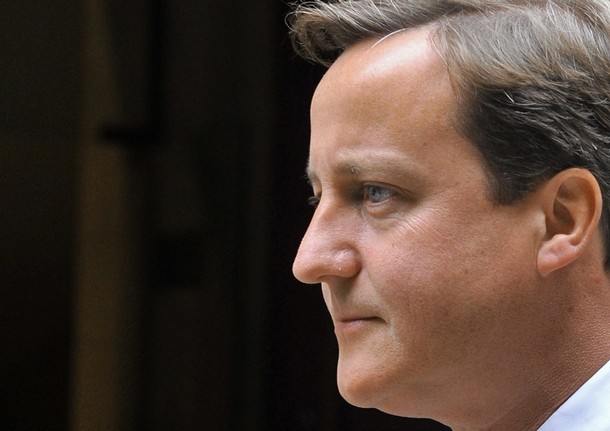In November 1942 Winston Churchill famously said, “This is not the end. It is not even the beginning of the end, but it is the end of the beginning.” For two years I have waited for Prime Minister Cameron to stand up and make a speech that establishes Britain’s Euro-Realist principles and gives the EU a wake-up call. At a time of immense change both in the EU and the world, Cameron this morning delivered that speech.
The message was as succinct as it was blunt: if EU leaders choose a legitimate union of nation-states and begin the reforms Europe desperately needs if it is to compete effectively in the twenty-first century then Britain will be a part of it. If EU leaders choose instead the path towards a false union—a sclerotic, uncompetitive and unaccountable Brussels bureaucratic tyranny—Britain will leave, but only after a fight!
This was a principled, grand strategic Euro-Realist speech, not the little Englander euro-sceptic speech as characterized by the hopelessly-biased BBC and its supporters on the political left. This was a British prime minister, leader of one of the world’s top powers, standing up for principle against the danger of an inadvertent, but nevertheless very real threat to democracy at this tipping point in Europe’s governance. A road to tyranny set out all too clearly last night by former Belgian Prime Minister Guy Verhofstadt, when he talked of the German-style Basic Law for a federal Europe which he said is coming. Cameron also challenged the lazy notion that Soviet-style centralization under the rubric of “ever closer political union” is either inevitable or good. He stood up for “heretics” like me who have had the courage to stand up for the Europe we believe in and been ostracized for speaking truth unto power.
Critically, his speech offered five Euro-realist principles. First (and foremost) he called for a competitive Europe. The EU will fail if it tries to ring-fence Europe from world change and reality. Second, he envisioned a flexible EU that no longer forces member-states into a single intolerant template. Third, he demanded that power flow in two-directions between Brussels and the member-states, a commitment of a decade ago that has been conveniently forgotten by the Euro-federalists. Fourth, he reminded all Europeans of the absolute centrality of real democratic accountability, not the false legitimacy “offered” by the appalling European Parliament. Fifth and finally, he reminded Europeans of the need for an EU built on that most British of traits, fairness. Whatever new arrangements emerge within the Eurozone in 2014 the new EU that is coming must be fair to all and seen to be so.
Above all, Cameron had the courage to trust the British people, unlike Labour leader Ed Miliband or Nick Clegg of the Liberal Democrats. Equally, he charged that same British people with the responsibility that now lies before them. Britons have asked for a choice; they have now got it and when they make that choice it must be a considered choice. By 2017 or 2018 when the referendum comes the current phony war over the future of the EU will be over and Europe’s future direction will be clear. EU leaders had better understand that it is the political context of the referendum which will decide the vote, for the majority of the British people are by no means anti-Europe. If EU leaders act like Verhofstadt and are dogmatic and intolerant of legitimate British concerns then the vote will indeed become an in-out referendum. Miliband and Clegg had also better understand that the offer of a vote now having been made to deny the British people would be electoral suicide.
What Cameron offered was a British vision for Europe, one that should be taken very seriously. Indeed, far from being a speech that charts a path to a Brexit, if other EU leaders are sensible they will recognize that what Cameron said chimes with millions of ordinary European citizens on this side of the Channel. Now a sensible, popular and lively debate must begin on the critical issues Cameron raised which will not only define Europe but Europe’s place in the world. It is a vision for a Europe that puts citizens, not elites, front and . It is a call for an end to the nation-state crushing, freedom-destroying, elitist political fantasy that the EU has become.
Two kilometers from here is a small British war cemetery. Five young Britons killed for the freedom of Europe lie interred in clay. Cameron rightly reminded Europeans (and sadly the Obama administration) of a simple truth: Britain’s role in making the Europe of today was critical and Britain’s role in making the Europe of tomorrow will be equally critical. It is not Britain that is turning inward away from a dangerous world; it is the EU as currently constructed.
Julian Lindley-French is Eisenhower Professor of Defence Strategy at the Netherlands Defence Academy, Fellow of Respublica in London, Associate Fellow of the Austrian Institute for European and Security Studies and a member of the Strategic Advisory Group of the Atlantic Council. He is also a member of the Academic Advisory Board of the NATO Defence College in Rome. This essay first appeared on his personal blog, Lindley-French’s Blog Blast.
Image: reuters%209%205%2011%20David%20Cameron.jpg
